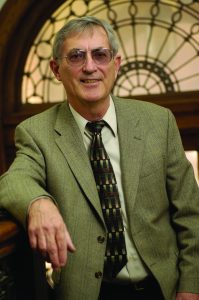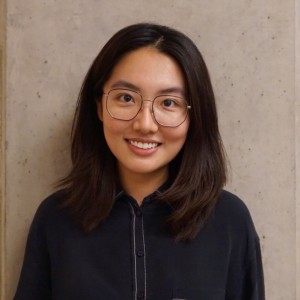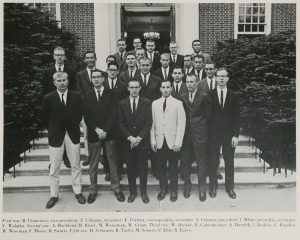Johns Hopkins UniversityEst. 1876
America’s First Research University
Throughout his career, David Gakenheimer, Engr ’65, has always loved to do something new.
“My Hopkins education enabled me to be fearless and address all kinds of different research projects,” he says. “I learned how to ask questions and explore solutions. The value of my education was not that I learned a lot of things and remembered them all. I learned methods, and that’s even more important now than it was when I was a student. The world around us is changing fast.”

After graduating with a bachelor’s degree in mechanical engineering from the Johns Hopkins Whiting School of Engineering, Gakenheimer earned a PhD in applied mechanics at the California Institute of Technology. He worked for more than three decades in the aerospace defense industry, where he developed the Logicon Caries Detector, an artificial intelligence (AI) software program that helps dentists to more reliably diagnose tooth decay and create improved treatment plans for patients.
“Applying engineering like AI to solve medical problems was new at the time,” Gakenheimer says. “Now it’s very big business. It’s certainly improving the medical field in leaps and bounds.”
Today, Gakenheimer is supporting the next generation of pioneering biomedical engineers though a fellowship in the Institute for Computational Medicine.
Though based in California, Gakenheimer has maintained his connection to Hopkins, even hosting on-campus seminars. A decade ago, he developed a heart arrhythmia and became acquainted with research that the Whiting School was doing on the subject.
“That was the beginning of my work with Hopkins to improve medical research and apply engineering skills that have never been brought to bear on that problem,” he says.
Gakenheimer established The David C. Gakenheimer Fellowship in 2013. The fellowship supports doctoral candidates conducting research aimed at developing and advancing heart diagnostic methods — such as detection, classification, and treatment of rhythm disorders — and provides funding for travel, conference fees, and research.
Rising third-year PhD candidate Yingnan (Nancy) Zhang was named the Gakenheimer Fellow in 2021. Zhang’s current research with Murray B. Sachs Professor Natalia Trayanova focuses on using image-based computational modeling to simulate arrhythmias in patients with arrhythmogenic right ventricular cardiomyopathy (ARVC).

“I have been determined to become a translational researcher in medicine since I was very young. Translational medical research means that we are actually bringing in-lab findings directly to the patients, which is also what Dr. Gakenheimer is very passionate about,” Zhang says. “He is really into our investigation of arrhythmia, which is a very common heart problem in the U.S., and how we can help real world patients with optimized ablation procedure.”
Ablation is a procedure to treat an irregular and often rapid heart rhythm that uses small burns or freezes to cause scarring in the heart to break up the electrical signals that cause irregular heartbeats. Zhang and other researchers in Trayanova’s lab are developing technologies that enable clinicians to target the most precise points when treating arrhythmia with ablation to ensure the problem does not return, which can help patients avoid repeat procedures.
The fellowship has allowed Zhang to start the study on ARVC, a genetic cardiomyopathy that affects primarily younger patients and those who keep an active lifestyle. The disease has a complex mechanism, making it hard to manage in the clinic, Zhang says, and the power of mechanistic computational modeling has not been harnessed before to explore the mechanisms of ARVC and suggest an improved ablation therapy. Being the first researcher investigating ARVC using a computational whole heart model, Zhang has been working closely with clinicians and geneticists at Johns Hopkins Hospital and the ARVC study won a Discovery Award in 2022. Zhang is now branching into further ARVC studies thanks to Gakenheimer’s support.

“Especially for me, as a non-resident PhD student, applying for National Science Foundation (NSF) grants is impossible. Non-resident students also aren’t eligible for many types of individual pre-doctoral fellowships from the National Institutes of Health (NIH),” Zhang explains. “So, for me, this fellowship is the first fellowship I got in my graduate study, and it paved the way and gave me confidence for my future research career.”
Zhang has presented her research to Gakenheimer, and she has enjoyed learning from his insights and experience in patenting and regulatory clearing of software. He holds a U.S. patent for the Logicon Caries Detector and cleared it for patient use with the FDA.
“I see a world of opportunities for other kinds of devices. It’s my hobby in retirement,” Gakenheimer says, adding he has continued to collaborate on biomedical research projects. “It’s just fun for me.”
In addition to supporting doctoral candidates, Gakenheimer has made a significant commitment through his estate plan to support a future professorship in the Whiting School of Engineering by including Johns Hopkins as a beneficiary of his IRA retirement accounts and a testimonial charitable remainder unitrust (CRUT) comprising his real estate holdings and non-IRA financial investments. He arranged for Johns Hopkins to serve as the managing trustee of the CRUT in addition to being a beneficiary of the remainder.
“There are going to be more and more opportunities as more data becomes available,” he says. “I would like to motivate faculty to do what I’m interested in and look for more ways of transferring engineering into medical applications.”
Topics: Support Scholars